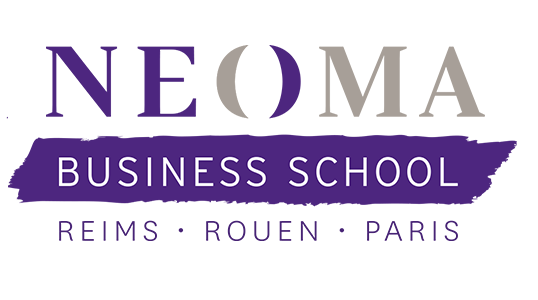But while switching to online teaching is proving a necessary move for business schools, it’s also providing a chance to re-evaluate old methods and innovate new ideas. Here’s how NEOMA Business School, in France, is embracing the move towards online-learning and building the business school of tomorrow.
More than just moving classes online
Soon after lockdown measures were introduced, NEOMA resumed all classes online. In one week, 749 lessons were scheduled remotely with 266 teachers and speakers mobilized for 4,000 students.
Using the functionality of video conferencing platforms like Zoom, the online classroom involves webinars instead of seminars, with video calls replacing face-to-face meetings.
It’s a large-scale operation but Sandrine Henneron, associate dean for faculty at NEOMA, sees it as more than just a coping mechanism.
“Of course, the priority objective is to ensure educational continuity,” she says. “But this online education also represents a great opportunity to highlight the evolving role of the teacher. More than ever, being a teacher means putting knowledge into perspective and supporting students in processing, analysis and criticism.”
It means that NEOMA have had to change the way that students are learning. It’s not simply a case of rescheduling every class online. Instead, by reviewing sessions there is a greater focus on student interactions and finding new ways that they can work well in groups.
Online startup incubator
At NEOMA, an incubator program provides support to students growing new startups. One of the primary functions of the incubator program is to provide development plans and guidance for students.
The coronavirus pandemic has upset these plans. But François Jolly, head of incubators at NEOMA, says the school have been working hard to adapt.
“In order to best help them get through this crisis, not only are we maintaining our coaching activities, but above all we are implementing 100% digital formats for all of our services.”
Alongside weekly video meetings and the sharing of government measures on discussion threads in Slack, it’s also including round-table online video meetings with around twenty of the incubated startups.
“We are pleased to note that our startups feel in solidarity with each other and do not hesitate to encourage each other,” François says.
Talking and communicating with one another, not just academic staff, gives students a solid and supportive network to bounce ideas off.
“I think that this is also why we recognize the strength of incubators: we are not only a support structure for business creation, but a network—a community of entrepreneurs who learn from each other,” François explains.
Instead of foregoing networking during the pandemic, NEOMA is showing that instead schools can harness and build upon community as a way for students to continue to reap the networking benefits of business school.
Future for business schools
There is a certain caution around online learning within business schools and students. Important factors like face-to-face networking events and value to employers are viewed as reasons for choosing a full-time program over an online version.
But in the current climate, the necessity of online learning means that this stigma attached to online learning is decreasing. NEOMA is showcasing the innovative ways that schools are able to adapt.
In fact, NEOMA offers one of the most flexible Executive MBA programs on the market, with several different formats lasting between 10 and 15 months, all incorporating online learning.
Going forward, Sandrine is optimistic that the changes schools have had to make due to the pandemic will have positive long-term results.
“This is only the beginning, but it is a safe bet that the lessons we will learn at the end of this health crisis will allow us to bring an additional stone to the construction of the business school of tomorrow.”








